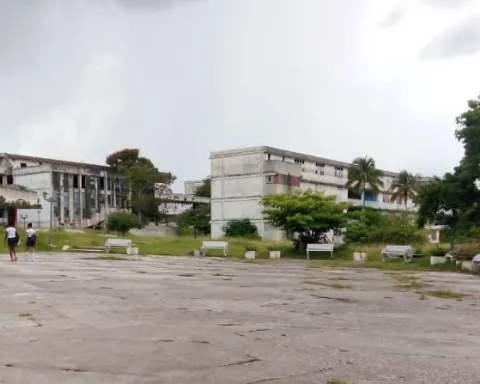EFE / La Paz
Crypto assets are prohibited in Bolivia to prevent “potential losses” between operators and holders, however, there are sectors that consider that this measure leaves the country “out of date” in the digitization of its economy.
The Central Bank of Bolivia (BCB) ratified earlier this year the prohibition of the “use, commercialization and negotiation of crypto assets”.
The determination establishes that the use of cryptoactives implies “potential risks” such as economic losses that may affect their operators or holders, so that in addition to the prohibition, the public is protected “from risks, deception and fraud.”
The legal framework invoked by the BCB is the 2009 Constitution and the Financial Services Law in force since 2013, so there is no record of people who use this mechanism, nor are there ATMs in the country that operate with cryptocurrencies.
GAP IN THE ECONOMY
The former director of the BCB José Gabriel Espinoza told Efe that this decision “makes Bolivia very outdated in the digitization of its economy”, when the “elimination of cash (…) is a worldwide trend”.
Espinoza pointed out that although it is true that the restriction avoids negative effects due to the “high volatility” of crypto assets, it must also be taken into account that “the capacity for control and technology” to comply with the legal framework that prohibits its use because it is “very scarce”.
In addition, there are factors that can stimulate the use of cryptocurrencies such as a growing young population adapted to technology and the urbanization of the country, at the same time as difficulties such as the lack of legal certainty, inadequate financial education and the evident technological gap.
And there are also some sectors of the Bolivian economy, mostly informal, that have chosen to accumulate value with this type of instrument.
Therefore, he considers that this prohibition “leaves many users who are still operating with these currencies defenseless.”
ECONOMIC SOVEREIGNTY
An element that underpins the restriction on blockchain technologies is the “Bolivianization” of the economy, that is, the incentives for economic transactions to be carried out in local currency, which has resulted in the fact that for several years there has been a type of Fixed exchange rate and controlled prices.
What distinguishes the Bolivian position from that of countries such as Chile, Argentina, Brazil and Venezuela that admit those transactions is the condition of “economic sovereignty” and that contrasts with the different “coexistence” with other currencies in addition to financial development, Espinoza pointed out.
However, he stressed that between the prohibition and permissiveness in the use of cryptocurrencies “there is a process in the middle” that consists of developing “cashless economies” and then taking a step towards the use of electronic currency and establishing electronic monetary policies. .
First is “the opening or transition to an electronic monetary policy where money is already dematerialized” and then “the development of technical skills within the monetary entities,” the economist mentioned.
Espinoza lamented that, however, it seems that the ban has been reached as a limit since “from then on there is no further development of the new monetary policy.”
For this reason, he considers that it is “necessary to discuss” this issue at a time when crypto assets are mainly used as value reserve assets.
















